Political Prisoners In Iran Blame Authorities For Death Of Jailed Poet
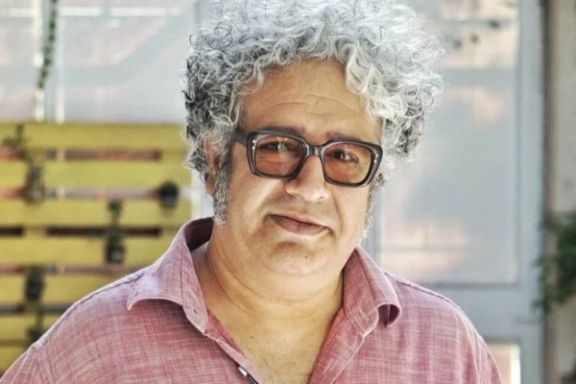
Several Iranian political prisoners have written an open letter holding the Islamic Republic responsible for the death of poet and filmmaker Baktash Abtin.

Several Iranian political prisoners have written an open letter holding the Islamic Republic responsible for the death of poet and filmmaker Baktash Abtin.
Political prisoners in Gohardasht Prison said that Abtin’s death is the continuation of the politically motivated serial assassinations – also known as Chain murders of Iran, a series of 1988–98 murders and disappearances of Iranian dissident intellectuals.
They said the Islamic Republic has found new ways to silence the voices of those who are critical of its system, describing Abtin is an example.
Criticizing “inaction” by international human rights organizations, the detainees stated that facing no consequences for its crimes against humanity has emboldened the repression and killing machine of the Islamic Republic.
Earlier in the day, some scuffles were reported following a ceremony to commemorate Abtin in the women’s ward of the Evin Prison, when officials tried to transfer rights activist and photojournalist Alieh Matlabzadeh to the notorious Qarchak Prison.
Abtin died of Covid-19 complications following days of medically induced coma on Saturday after he was denied timely treatment by officials at Tehran’s Evin Prison.
The Iranian Writers' Association said in a statement that his funeral service was held a day ahead of schedule under a heavy presence by security forces because authorities feared a large crowd and protest during the event.
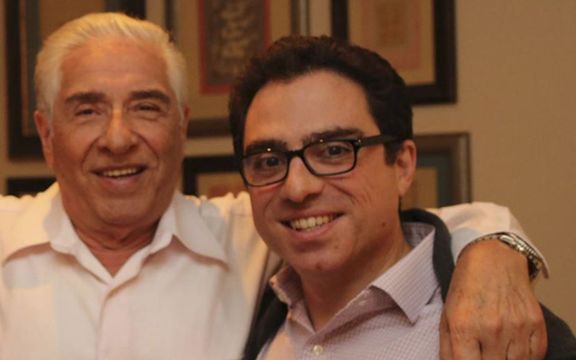
US Special Envoy for Iran Robert Malley has called on the Islamic Republic to release US and UK citizens who are imprisoned in Iran.
Malley said in a tweet on Monday that the Iranian government has held environmentalist Morad Tahbaz for four years, stressing that he is a father and a cancer victim.
Iran has arrested many dual nationals and foreignners throughout the years, charging them with vague espionage and political offenses.
In a similar call for the fourth anniversary of Tahbaz’s “unfair detention in Iran”, UK Foreign Secretary Liz Truss said that “Iran must release him and all unfairly detained British nationals to allow them to return to their families. This appalling ordeal must be brought to an end.”
Malley also urged the release of Iranian American businessman Siamak Namazi, who is imprisoned in Iran since October 2015 on charges of collaboration with a foreign government, and his 84-year-old father, Bagher Namazi, a retired senior UNICEF official, also arrested and jailed in 2017 after he went to Iran to visit his son. Both are serving ten-year sentences.
Malley also called on the authorities to free Emad Sharghi, a 56-year-old Iranian American businessman who was arrested in December 2020 and sentenced to 10 years in prison on charges of espionage and collecting military intelligence.
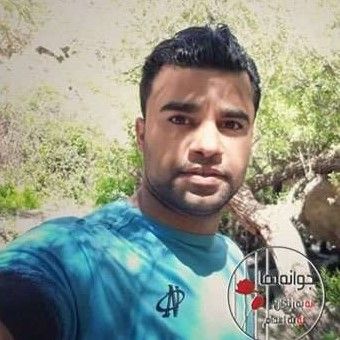
A court in Mashhad has passed a death sentence on a man arrested March 2020 for allegedly setting fire to government property, including the penitentiary.
According to a tweet by lawyer Babak Paknia, his client Mohammad Javad Vafaei Sani had been convicted of ‘corruption on earth.” Sani, 26, is a former school boxing champion in Mashhad, in Khorasan province, north-east Iran.
Reports on websites run by the Albania-based Mujajideen-e Khalq claim Vafaei Sani, described as a “political prisoner,” had been tortured in jail for two years to force him to confess after his family was unable to afford a 300 billion rial bail (around $1.2 million) set for his release.
Earlier in the month, a report said that more than 365 prisoners were executed in 2021 in Iran, about one death per day. Some executions take place in secret and not reflected in reports.
Human rights organizations and United Nations experts have repeatedly called on Iran to end executions, especially those of juvenile offenders. Iran in 2020 had the second highest number of executions globally (246) after China, with thousands, and ahead of Egypt (107), and Saudi Arabia (27). Amnesty International says Iran has used the death penaltyas a form of political intimidation, and that executions follow unfair trials and may involve confessions made under duress.
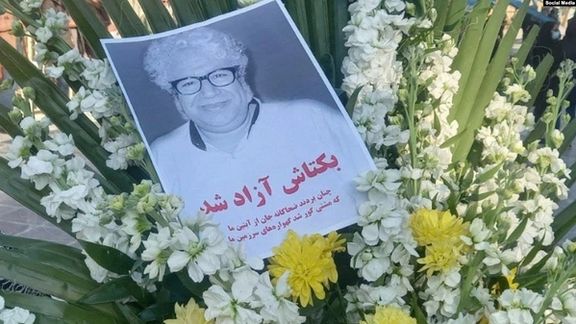
The funeral service of imprisoned poet Baktash Abtin was held in Tehran a day ahead of schedule under pressure by security forces because authorities feared a large crowd and protest during the event.
Abtin died of Covid-19 complications following days of medically induced coma on Saturday after he was denied timely treatment by officials at Tehran’s notorious Evin prison.
The Iranian Writers' Association said in a statement that he was buried under the heavy presence of security forces on Sunday instead of Monday.
According to videos on social media, security measures turned out to be in vain as people showed up in the funeral Sunday afternoon and chanted slogans against the Islamic Republic and its leaders.
Saturday evening, security forces disrupted a candlelight vigil by mourners who had gathered in front of the hospital where he died.
His friends and colleagues charged that prison officials had delayed sending him to a hospital for ten days.
The poet and writer was sentenced to six years in prison in May 2019 for publishing documents about the history of the Writers’ Association and some comments against censorship. His death despite warnings that he should be released from prison has led to a wave of condemnations on social media.
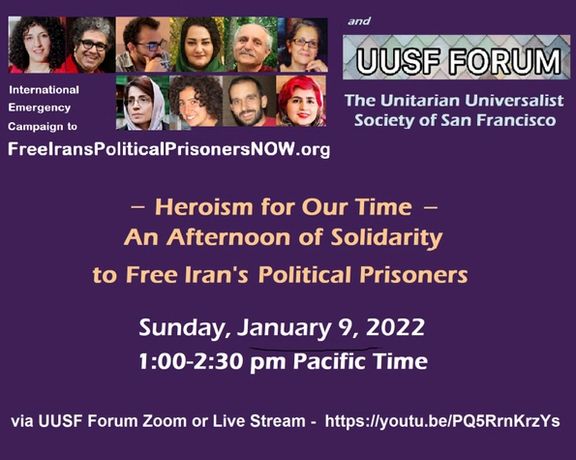
A group of human rights activists have organized a live online event to raise awareness about political prisoners in Iranian prisons.
The webinar, which is scheduled to be livestreamed on YouTube late on Sunday January 9, is titled “Heroism for our time -- An afternoon of solidarity to free Iran's political prisoners”.
Mariam Claren, the daughter of jailed Iranian-German citizen Nahid Taghavi, and Larry Everest, a spokesman for the International Emergency Campaign to Free Iran’s Political Prisoners, are among the keynote speakers of the event.
Taghavi was arrested late in 2020at her home in Tehran and was transferred to Evin prison after weeks of detention without charge. In August, she was sentenced to over 10 years in prison on charges related to “propaganda against the regime”.
The event comes a day after imprisoned Iranian poet and writer Baktash Abtin died of Covid-19 complications after he was denied timely treatment by officials at Tehran’s notorious Evin prison.
Iranian security and intelligence organs, in close harmony with the country’s hardliner Judiciary, often make vague accusations against dual nationals. Both courts and prosecutors in Iran are controlled by the hardline Judiciary which is accountable to Supreme Leader Ali Khamenei.
Western countries and human rights organizations accuse Tehran of detaining innocent foreigners as bargaining chips to extract concession from other countries.
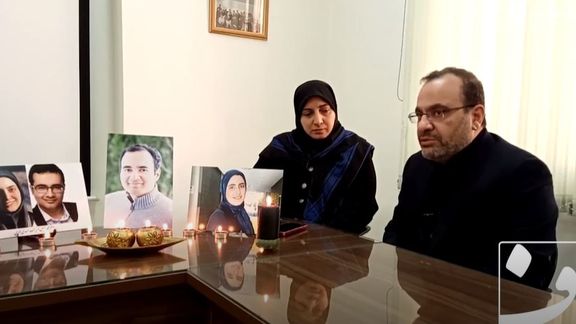
Parents of two victims in the downing of an airliner say it was used as a "human shield" to prevent possible US retaliation in the wake of Iran's missile attack on US bases in 2020.
Dr Mohsen Asadi-Lari, a former high-ranking health ministry official, and his wife Dr Zahra Majd who lost both their children, Mohammad-Hossein and Zeinab, in the downing of the Ukrainian plane on January 8, 2020 have broken their silence about the incident which they say cannot be reduced to "human error" as Iranian authorities claim.
"We have concluded that they used the plane as human shield. I'll be frank … They probably wanted to down it and blame it on the US," Asadi-Lari told Ensaf News, a reformist website, in a long interview conducted Tuesday but published Saturday. He also claimed that similar incidents have happened in the past but did not cite any particular example.
Apparently referring to remarks made by Revolutionary Guard (IRGC) officials, Asadi-Lari said officials have admitted that a war with the US could happen if the plane was not shot down. "They say if the plane was not downed a difficult war would happen the next day. The US would have attacked, and ten million lives would be in danger."
An early-morning disaster
Ukraine's flight PS752 was shot down by two air-defense missiles fired by the IRGC on January 8, 2020, as it took off from Tehran’s Imam Khomeini International Airport. Only hours earlier, the IRGC had fired more than a dozen missiles at Iraqi bases hosting US and coalition troops in retaliation for the killing of the IRGC Qods Force Commander Qasem Soleimani who was targeted and killed in Baghdad by a US drone strike just five days earlier.
Despite expecting retaliation from the US, the IRGC which is responsible for air defense of the capital did not close the civilian airspace in the early morning hours of January 8.
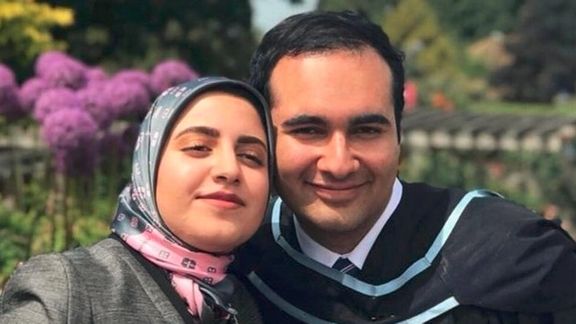
Secretary of Ukraine’s national security and defense council, Oleksiy Danilov, in April told Canada's The Globe and Mail that he believed the downing of the plane was a "deliberate attack" to prevent retaliation for Iran's attack on US forces in Iraq.
The Asadi-Lari family criticized Iran's trial of ten low-ranking military personnel which began in November in Tehran, saying that they were not even sure about the identities of those on trial, as defendants always sat with their backs to the plaintiffs during court sessions.
"The actions taken by the team that planned, ordered, and carried out the firing [of the missiles at the plane] have not been included in the case files," Asadi-Lari said in another interview published Saturday by the Iranian Students News Agency (ISNA). "What happened later, including the cleaning up of the scene and pillage of the belongings of the passengers, destruction or confiscation of some of their belongings [such as electronic devices and phones] are also among the things that should have been reflected in the case files."
Asadi-Laris also accused the authorities of "increasingly distorting the truth". "Woefully, they are adding up to the atmosphere of fear and intimidation," Asadi-Lari told Ensaf News, adding that the families who live in Iran have kept their silence and not spoken with the media out of fear of retribution.
Families desparate for truth and justice
In his interview with ISNA, Asadi-Lari said that more than 100 families including his family have filed lawsuits with the Iranian judiciary for the prosecution of those responsible, but the court has ignored their claims against some officials including IRGC Aerospace Commander Brigadier General Amir-Ali Hajizadeh.
Hajizadeh took responsibility for the incident three days after official denials of the truth about the incident. Victims' families were informed by Tehran Military Prosecutor's Office in August that Hajizadeh and eight others had been given immunity from prosecution.
Since the admission, Tehran has refused to allow an independent investigation into the incident and according to Ukraine and Canada that had dozens of citizens and permanent residents aboard, has not provided full and convincing answers to questions that can shed light as to what really happened.
On Saturday, Canada in response to an inquiry by Iran International called Iran's downing “a Canadian tragedy” and called for justice and transparency.
A Canadian court just recently awarded C$107 million ($84 million) to the families of six people who had sued Iran. More court cases are pending in Canada.
Lari and his wife, both professors of Iran Medical Sciences University, say the whole family, including their two children who were students in Canadian universities, were devastated by Soleimani's killing and were very worried about a US retaliation for Iran's missile attack while the family was on their way to the airport. Before the flight took off, their son Mohammad-Hossein had been praying for Soleimani who was buried the day before.
Unlike parents and family members of many other victims of the tragedy that killed all 176 onboard, the Asadi-Lari family are not members of the Canada-based association representing the victims' families. The association does not recognize the eligibility of the Islamic Republic's Judiciary for the investigation of the incident and has repeatedly called for top Iranian officials, including Supreme Leader Ali Khamenei as commander-in-chief of the Armed Forces, to be held responsible.